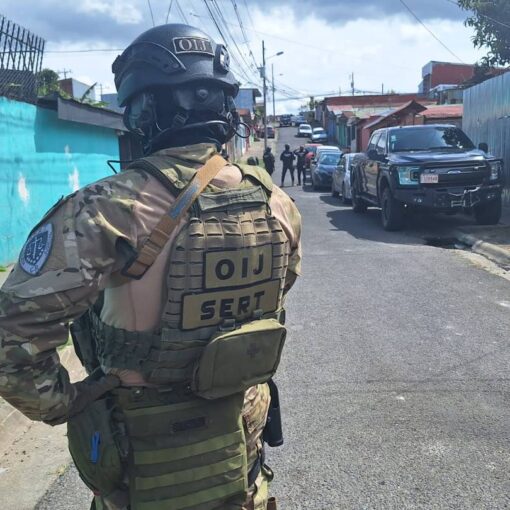QCOSTARICA — Because the government’s actions have not been forceful in stopping drug trafficking, Sofía Guillén questioned the commitment of the Rodrigo Chaves administration to stop drug trafficking, while asserting that we live in a narco-state and that she believes that the government promotes it by action or omission.
“I fear, Costa Ricans, that we already live in a narco-state, what we believed was foreign, that was not going to happen to us, finally happened to us. And I dare say that it is no longer enough to talk about a narco-state, I think we are talking about a narco-government that is a facilitator, consciously or not, in practice, of these criminal groups,” said Guillén.
– Advertisement –
To support her accusation, the legislator for the Frente Amplio (FA) party pointed out that the famous Operación Soberanía (Operation Sovereignty) has not yielded the expected results and that the scanners that were placed in the ports of Limón have not worked efficiently.
Read more: NYT: Costa Rica disputes Mexico’s first place in cocaine transfers to the US and Europe
She recalled that on July 13, 2023, the Government announced “Operation Sovereignty” where Chaves said that not a single kilogram of drugs would leave the country.
“A month later we discovered that 1,240 kilos of cocaine had left. 560 kilos were reported shipped to Germany, 490 to the Netherlands, 720 to Spain, and 30 to Belgium, all from Costa Rica, and that passed through the scanners that were already in place.
“Sorry, that is not naivety or incompetence. I believe that there is a desire for favors,” said Guillén.
She added that at the beginning of the Government’s approval of the Eurobonds, there was a big discussion about forcing them to install the scanners because they did not want to.
– Advertisement –
The second fact was the issue of the prisons that the Ministry of Justice wanted to make with tents.
Guillén questioned how the company that was going to build the “prisons with tents” had already obtained US$8.3 million dollars in contracts with this Government.
The legislator also pointed out that the failed tent project and the transfer of the Coast Guard Academy from Quepos to Pococí, where there is no sea, are also other warning signs.
“Although the Coast Guard Academy requires that 65% of its courses be at sea, its headquarters were moved and then some officials of the Policía de Control de Drogas (PCD) – Drug Control Police – warned that this would weaken the border posts,” said Guillén.
– Advertisement –
The growth of drug groups in national territory is causing Costa Rica to dispute with Mexico the first place in the region in cocaine transshipment to the United States and Europe, as reported this Sunday by the prestigious newspaper The New York Times under the title “How a tourist paradise became a magnet for drug trafficking.”
The newspaper cites as a source the report called “Integrated Country Strategy,” which was prepared by the United States Department of State in 2022. The document reports that Costa Rica surpassed Mexico in 2020 and 2021 as the main cocaine transshipment center, while in 2022 Mexico regained first place.
“What a shame, what a shame, but also how dangerous. What we need is to attack the drug lords and, to do that, we must combat money laundering, money laundering and emerging assets without legal support.
“Naivety or incompetence? I don’t think so. They removed a key position from where there is sea or where there is none. That is not incompetence or naivety,” Guillén concluded.
The legislator insisted that it seems that the Government is helping organized crime instead of stopping it.
– Advertisement –
Source link
Rico



